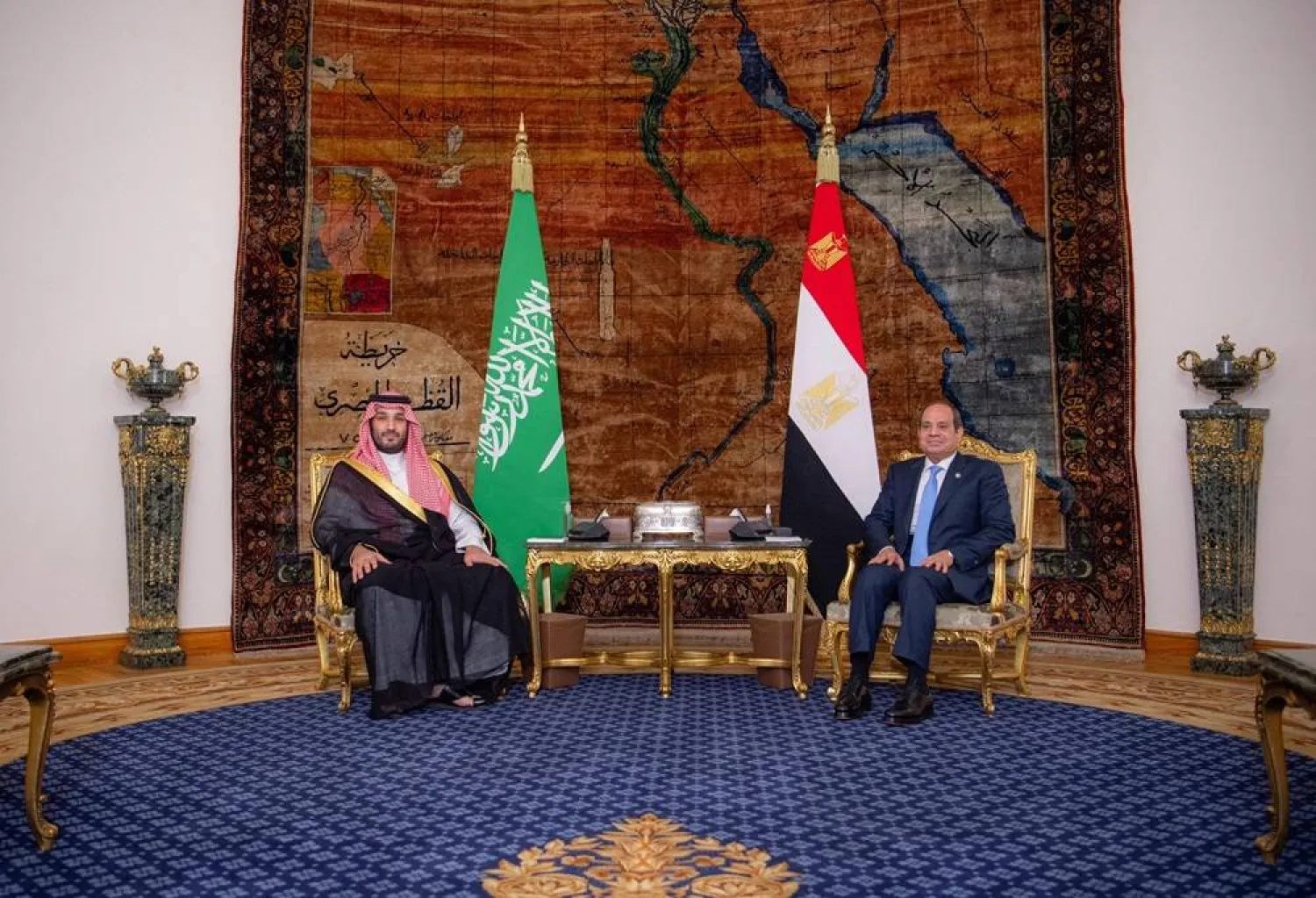Prince Mohammed bin Salman, Saudi Crown Prince and Prime Minister, and Egyptian President Abdel Fattah al-Sisi warned on Tuesday against policies that take the region to the edge of the abyss.
Meeting in Cairo, they demanded that steps be taken to reach a ceasefire in Gaza and Lebanon and for the humanitarian situation be addressed there.
A statement by the Egyptian presidency said the leaders discussed regional developments, starting with the conflicts in Gaza and Lebanon. They agreed on the dangerousness of the situation in the region, urging a de-escalation.
They called for respecting the sovereignty, security and stability of Lebanon and stressed the need for the establishment of a sovereign Palestinian state in line with international resolutions.
This is the only way that sustainable peace and security can be achieved in the region, they added.
They warned that attempts to “erase” the Palestinian cause will only prolong conflicts in the region.
Crown Prince Mohammed and Sisi also reviewed developments in the Red Sea, Sudan, Libya and Syria.

Crown Prince Mohammed had arrived in Cairo on Tuesday on an official visit.
He held bilateral talks with Sisi ahead of expanded discussions that included Saudi and Egyptian delegations.
The leaders presided over the signing of the formation of the Saudi-Egyptian Higher Coordination Council that they will both chair.
Sisi underscored the depth of the strategic relationship between Saudi Arabia and Egypt, especially amid the threats facing the region.
He stressed the importance of maintaining joint coordination and cooperation to overcome the current instability in the region and Islamic world.
For his part, Crown Prince Mohammed conveyed to Sisi the greetings of Custodian of the Two Holy Mosques King Salman bin Abdulaziz, underlining the importance Saudi Arabia places on bolstering ties with Egypt.
Upon his departure, he sent a cable to Sisi to express his gratitude to the warm reception.
“The visit and the talks that we held underscored the strength of relations between our countries and a joint desire to bolster cooperation in all fields,” he said.
The visit also demonstrated a keenness on maintaining coordination and consultations on issues of common interest under the leadership of Custodian of the Two Holy Mosques and Sisi, he added.









